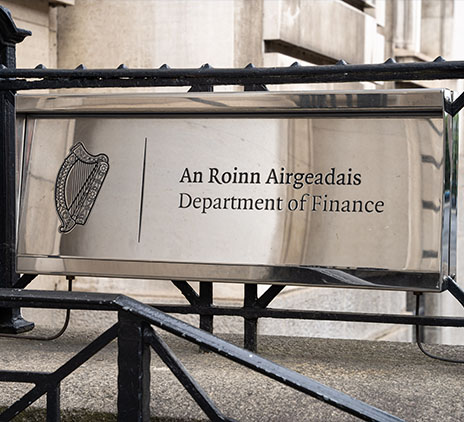-
Aviation Advisory
Our dedicated Aviation Advisory team bring best-in-class expertise across modelling, lease management, financial accounting and transaction execution as well as technical services completed by certified engineers.
-
Consulting
Our Consulting team guarantees quick turnarounds, lower partner-to-staff ratio than most and superior results delivered on a range of services.
-
Business Risk Services
Our Business Risk Services team deliver practical and pragmatic solutions that support clients in growing and protecting the inherent value of their businesses.
-
Deal Advisory
Our experienced Deal Advisory team has provided a range of transaction, valuation, deal advisory and restructuring services to clients for the past two decades.
-
Forensic Accounting
Our Forensic and Investigation Services team have targeted solutions to solve difficult challenges - making the difference between finding the truth or being left in the dark.
-
Financial Accounting and Advisory
Our FAAS team designs and implements creative solutions for organisations expanding into new markets or undertaking functional financial transformations.
-
Restructuring
Grant Thornton is Ireland’s leading provider of insolvency and corporate recovery solutions.
-
Risk Advisory
Our Risk Advisory team delivers innovative solutions and strategic insights for the Financial Services sector, addressing disruptive forces, regulatory changes, and emerging trends to enhance risk management and foster competitive advantage.
-
Sustainability Advisory
Our Sustainability Advisory team works with clients to accelerate their sustainability journey through innovative and pragmatic solutions.

-
 Asset management Asset management of the futureIn today’s global asset management landscape, there is an almost constant onslaught of change and complexity. To combat such complex change, asset managers need a consolidated approach. Read our publication and find out more about what you can achieve by choosing to work with us.
Asset management Asset management of the futureIn today’s global asset management landscape, there is an almost constant onslaught of change and complexity. To combat such complex change, asset managers need a consolidated approach. Read our publication and find out more about what you can achieve by choosing to work with us. -
 Internal Audit Maintaining Compliance with New EU Pension Directive IORP IIOn 28 April 2021, the Irish Government transposed IORP II (Institution for Occupational Retirement Provision), an EU directive on the activities and supervision of pension schemes, into law.
Internal Audit Maintaining Compliance with New EU Pension Directive IORP IIOn 28 April 2021, the Irish Government transposed IORP II (Institution for Occupational Retirement Provision), an EU directive on the activities and supervision of pension schemes, into law. -
 Risk, Compliance and Professional Standards FRED 82 – Periodic Updates to FRS 100 – 105The concept of a new suite of standards for the UK and Ireland, aligning with international financial reporting standards, was first conceived in 2002
Risk, Compliance and Professional Standards FRED 82 – Periodic Updates to FRS 100 – 105The concept of a new suite of standards for the UK and Ireland, aligning with international financial reporting standards, was first conceived in 2002 -
 Audit and Assurance Auditor transition: how to achieve a smooth changeoverAppointing new auditors may seem like a daunting task that will be disruptive to your business and a drain on the finance function. Nevertheless, there are a multitude of reasons to consider a change, including simply seeking a ‘fresh look’ at the business.
Audit and Assurance Auditor transition: how to achieve a smooth changeoverAppointing new auditors may seem like a daunting task that will be disruptive to your business and a drain on the finance function. Nevertheless, there are a multitude of reasons to consider a change, including simply seeking a ‘fresh look’ at the business.
-
Corporate Tax
Our Corporate Tax team is made up of more than 40 highly experienced senior partners and directors who work directly with a wide range of domestic and international clients; covering Corporation Tax, Company Secretarial, Employer Solutions, Global Mobility and Tax Incentives.
-
Financial Services Tax
The Grant Thornton team is made up of experts who are fully up to date in terms of changing and evolving tax legislation. This is combined with industry expertise and an in-depth knowledge of the evolving financial services regulatory landscape.
-
Indirect Tax Advisory & Compliance
Grant Thornton’s team of indirect tax specialists helps a range of clients across a variety of sectors including pharmaceuticals, financial services, construction and property and food to navigate these complexities.
-
International Tax
We develop close relationships with clients in order to gain a deep understanding of their businesses to ensure they make the right operational decisions. The wrong decision on how a company sells into a new market or establishes a new subsidiary can have major tax implications.
-
Private Client
Grant Thornton’s Private Client Services team can advise you on all areas of financial, pension, investment, succession and inheritance planning. We understand that each individual’s circumstances are different to the next and we tailor our services to suit your specific needs.

The UK’s withdrawal from the EU, has not affected the rights of Irish and UK citizens within the Common Travel Area (CTA). They are still able to move freely and reside in either jurisdiction while enjoying associated rights and entitlements such as access to employment, healthcare, education and social benefits. Irish nationals and other EU nationals also maintain their freedom of movement within the remaining EU Member States. This means that Brexit may not have an immediate impact on Irish employers with regards to the movement of certain employees. However, many employers will have to deal with global mobility and immigration concerns due to Brexit.
How can employers mitigate risk?

Social Security
Social Welfare (Convention on Social Security between the Government of Ireland and the Government of the United Kingdom of Great Britain and Northern Ireland) Order 2020 came into effect on 1 January 2021. It ensures that Irish and UK citizens maintain the same social security rights and entitlements under the Common Travel Area arrangements, after the UK left the EU. This convention is similar to the EU social security coordination system, ensuring that employees still only pay social security contributions in one country.
The EU-UK Trade and Cooperation Agreement included a protocol on Social Security Coordination, which ensures that EU and UK citizens moving between member states will only have to pay social security in one country at a time. It includes provisions for ‘Detached Workers’, who can remain in their “home” social security system while temporarily working abroad. In February all EU countries opted in to the ‘Detached Workers’ rules. Separate rules apply to workers between the UK and the EFTA countries; Norway, Iceland, Liechtenstein and Switzerland.
Employers will need to know the citizenship status of their employees, where they carry out work duties and to make applications if necessary, under the revised rules to the relevant social security authority.
Personnel Mobility Matters
Brexit has not changed the underlying tax rules in Ireland but there could be an increase in short term business visits between Ireland and the UK, due to the close business relations and geographic proximity. This could result in tax implications for many individuals who would be considered as Short Term Business Visitors (STBV’s). They may have Irish PAYE obligations based on their individual Irish workdays. Revenue has provided extensive guidance on STBV matters.
UK employers may be liable for potential Irish PAYE obligations depending on their employees’ travel patterns, duties carried out and duration of those work activities.
Employer advice
We encourage employers to review their workforce to identify any employees who could be affected by immigration restrictions.
You should:
- Assess your global mobility procedures, planning ahead and integrating immigration requirements and pre-travel processes.
- Ensure that your key stakeholders understand the impact the new requirements will have on the business. If required, promote the benefits of upskilling on immigration requirements.
- Communicate with your employees, making them aware of any new pre-travel requirements or steps to secure settlement.
- Analyse the potential cost impact of attaining required immigration authorisation for employees.
How Grant Thornton can help
Our specialist employment tax team can assist you in addressing the challenges imposed by Brexit and mitigate any risks and costs.
See our Global Mobility Services offering See our Employer Solutions offering












